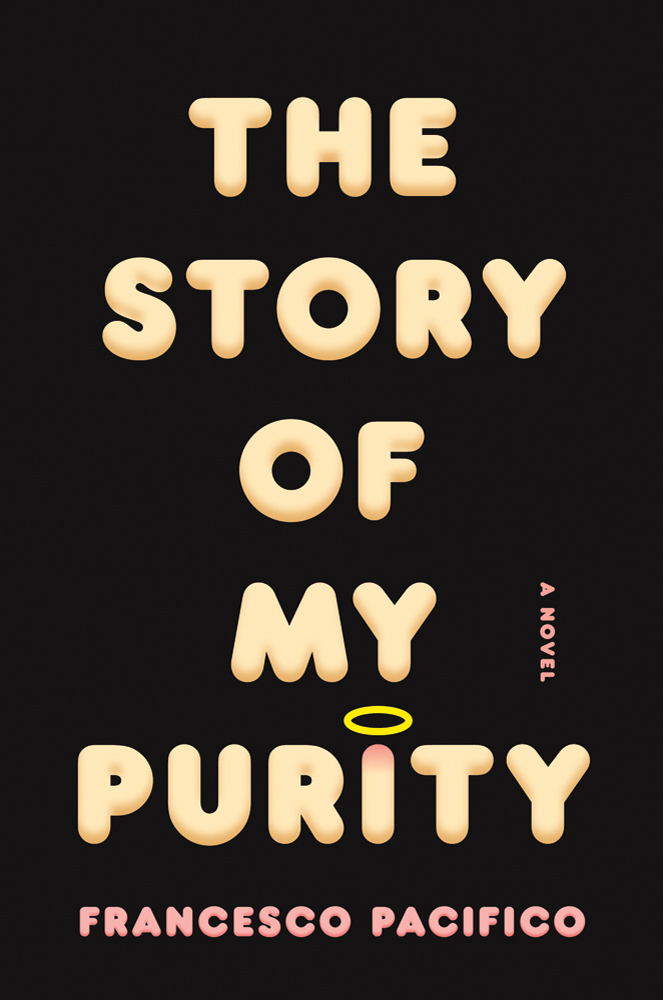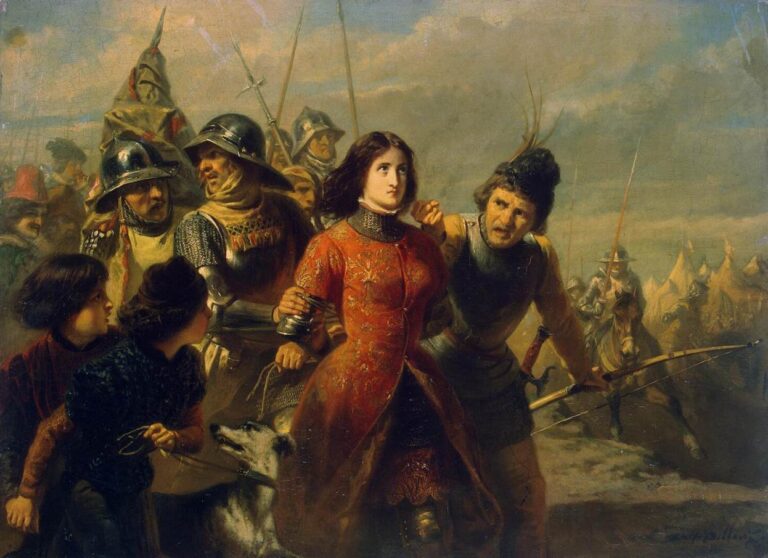Writing in a Changing World: Craft, Readerships, and Social Media
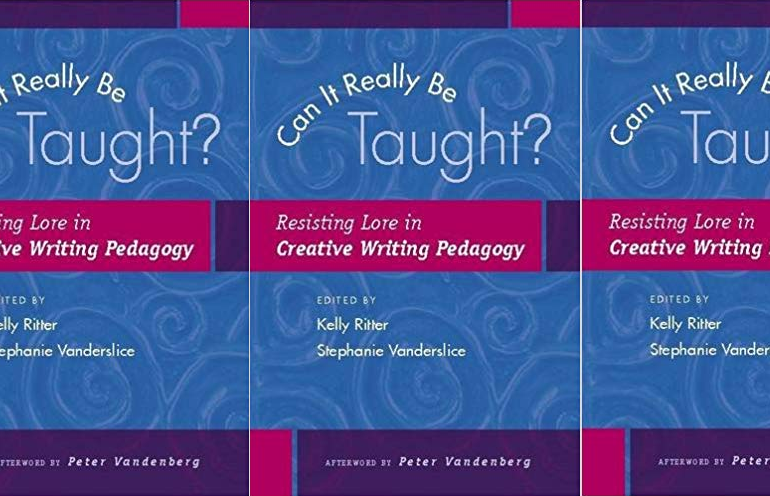 What do you wish your MFA program had taught you? How is the literary world—and media in general—changing? How should we change with it?
What do you wish your MFA program had taught you? How is the literary world—and media in general—changing? How should we change with it?
These are the questions that motivate Stephanie Vanderslice‘s work as a writer, professor, and HuffPost blogger. I heard Vanderslice speak at the International Great Writing Conference this June, where she tackled some controversial issues in the writing world: building readerships, taking ownership of one’s career trajectory, and teaching MFA courses on publishing and social media.
Vanderslice is the author of Rethinking Creative Writing: Programs and Practices that Work and Teaching Creative Writing to Undergraduates. She’s also the editor of Can It Really Be Taught? Resisting Lore in Creative

Writing Pedagogy… And on top of all that, she’s published numerous essays and articles on the teaching of creative writing. Basically, if you’re a writer, an aspiring writer, or a teacher of writing, you want this “Writing Geek” in your feeds.
That‘s why I threw some questions to Stephanie, with Ploughshares readers in mind. Take a look—and get to changing!
Tasha Golden: In your work, you teach elements of a literary career that are often neglected in MFA programs. Why the big interest in addressing these?
Stephanie Vanderslice: Because I had to learn them entirely on my own, after graduating from my MFA—and it took much longer than it might have if I’d been given some direction or instruction. Granted, I got my MFA over 20 years ago, in a very different era, but these elements are still unevenly addressed in many programs.
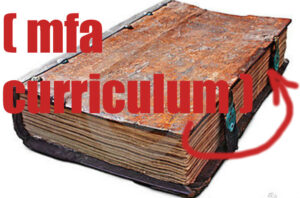
Part of it is that some MFA faculty are still teaching students to enter a literary landscape that no longer exists. With the shrinking of publication opportunities for mid-list writers, and the advent of Web 2.0 and self-publishing, the publishing world is morphing at warp speed.
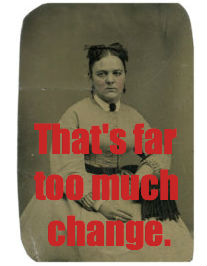
So it’s important both to teach students how to function in the current world, and also to teach them to simply be aware of and responsive to it as it changes. Because no one knows what it’s going to look like in five years.
The argument against this is that by advocating teaching this kind of awareness, I’m privileging marketplace over craft. I think that’s a rather facile objection. I mean, it’s simple math: one course in functioning in the current literary culture in a curriculum that spans two to three years means that craft still remains at the center of the MFA, as well it should.
Teaching students to function in their own literary culture isn’t just about self-promotion or platform building, either. It’s about owning the fact that you are a citizen of that literary culture. As such, you’re responsible for perpetuating literature: not [strictly] by promoting your own work, which is a tiny fraction of your role, but by being interested in what’s being written and published all around you.
 For example, how are you supporting your peers’ work—if you value it? How are you getting the word out about great books and literary events?
For example, how are you supporting your peers’ work—if you value it? How are you getting the word out about great books and literary events?
TG: Okay, so what do most writers “miss” when it comes to literary citizenship? What are the myths that you find yourself busting?
SV: The two central myths are one, that literary citizenship is all about self-promotion, and two, that it’s connected deeply to the “marketplace.” For example, a lot of students (and a lot of authors who clutter my Twitter feed with tweets about their own publications and nothing else) think that literary citizenship and platform-building means nothing more than promoting their own work.

In reality, it’s about completely saturating yourself in the literary culture—and then curating and promoting the work that interests you, so that other people will find it and care about it as much as you do.
My own platform has been built on promoting other writers in whose work I’m deeply interested. When I read a book I love or find an essay or poem that speaks to me, I want to tell the world about it… And it’s not quid pro quo. I’m participating in—and perpetuating—this culture because I love it. Active literary citizenship may have commercial benefits for books and publishing, but what’s at stake is much, much greater than that.
TG: At the Great Writing Conference, you mentioned that in America, we often think there are two alternatives for writers: either we’ll support ourselves solely with our writing (a la Stephen King), which is unrealistic for most of us, OR we’ll end up working a job we hate in order to make ends meet. But you say there’s a vast space in between. What’s in this vast space?

SV: This is actually quite a harmful dichotomy because it fails to acknowledge all the many ways you can live a creative life. A lot of creative writing students find satisfying careers as book editors, agents, features writers, magazine and online content editors, advertising copy writers, technical writers, arts managers and librarians… Three of my former students, for example, work in libraries, which in this area of the country means that they’re jacks of all trades who are not only surrounded by the latest books being published, but are also responsible for creating community literacy programs, writing camps, and visiting author series.
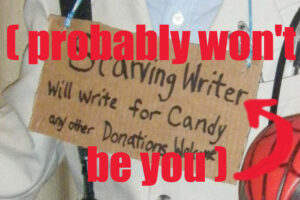 I like to tell my current MFA students that of my contemporaries from my own MFA program at George Mason University in the 90s, none of us are starving or selling insurance. All of us enjoy livelihoods that engage us with literary culture and writing in one way or another. And only a few of us are university teachers. This latter point is important because higher education is sadly more and more difficult to find a foothold in. We really enjoy what we do, and we also write and publish as much of our own work as we can.
I like to tell my current MFA students that of my contemporaries from my own MFA program at George Mason University in the 90s, none of us are starving or selling insurance. All of us enjoy livelihoods that engage us with literary culture and writing in one way or another. And only a few of us are university teachers. This latter point is important because higher education is sadly more and more difficult to find a foothold in. We really enjoy what we do, and we also write and publish as much of our own work as we can.
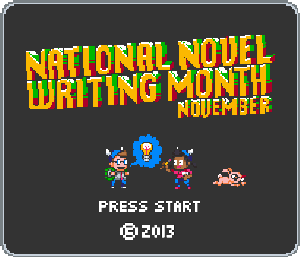 If the idea of a self-supporting writing career is off the table (and for most of us, it is), each writer needs to come up with her own idea of what literary success means: Completing NaNoWriMo? Publishing a couple of poems or stories or essays a year? Self-publishing? Then re-negotiate these ideas over your lifetime. Keep your eyes open and, most importantly, don’t give up too soon.
If the idea of a self-supporting writing career is off the table (and for most of us, it is), each writer needs to come up with her own idea of what literary success means: Completing NaNoWriMo? Publishing a couple of poems or stories or essays a year? Self-publishing? Then re-negotiate these ideas over your lifetime. Keep your eyes open and, most importantly, don’t give up too soon.
TG: What resources can you recommend for writers who need help balancing writing, another job, and just LIFE post-MFA?
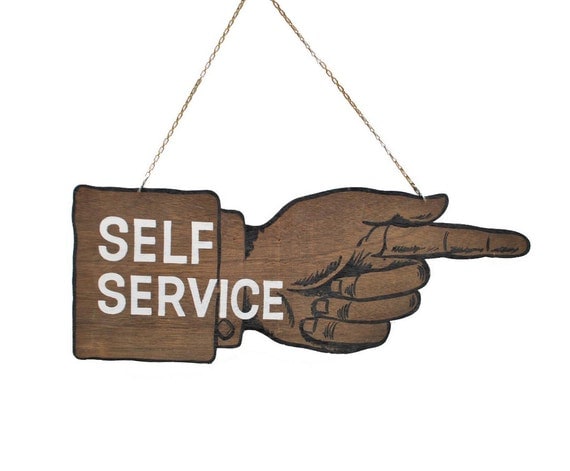 SV: The following books are enormously instructive, and they remind young writers with their shoulders to the wheel that they’re not alone.
SV: The following books are enormously instructive, and they remind young writers with their shoulders to the wheel that they’re not alone.
- Carol Loyd’s Creating a Life Worth Living – helps artists understand themselves, their abilities, and their creative habits, and to establish a game plan for sustaining themselves.
- Sage Cohen’s The Productive Writer
- Heather Sellers’ Page After Page and Chapter After Chapter (on craft)
- Ariel Gore’s How to Become a Famous Writer Before You’re Dead
- Christina Katz‘s and Chuck Sambuchino’s books on platform-building.
I also recommend writing by Cathy Day, Anna Leahy and Doug Dechow, and Erika Dreifus, whose work as “literary citizens” enriches my own writing life.
TG: You’ve received push-back for teaching MFA students how to build an audience. How have you responded to criticisms?
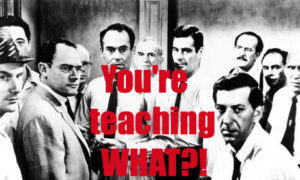 Fortunately, my friend Mimi Thebo, a novelist and teacher at Bath Spa University, prepared me for this kind of thing. I modeled my how-to-publish class, “Into Print,” after hers, and she warned me that other faculty might have a fit that I was showing students how to find their way in the publishing world. She was right: some did.
Fortunately, my friend Mimi Thebo, a novelist and teacher at Bath Spa University, prepared me for this kind of thing. I modeled my how-to-publish class, “Into Print,” after hers, and she warned me that other faculty might have a fit that I was showing students how to find their way in the publishing world. She was right: some did.
But I remain undaunted. I feel strongly that conferring degrees on writing students who don’t know the first thing about submitting their work for publication (whether they actually do it or not) is plain irresponsible.
I’m not directing students to send their early work to Ploughshares or Tin House; I’m explaining how to slowly build a body of work. The first time I taught “Into Print” years ago, students immediately began to accumulate publications that then served as the foundations of their careers. So who am I hurting by showing students how to do the very things that will sustain their careers and those of others?
 I actually get the most pushback about readerships from my students. I always die a little inside when I ask my students who they envision themselves writing for, and a few of them insist they are not writing for anyone—as if writing for readers is somehow “selling out.”
I actually get the most pushback about readerships from my students. I always die a little inside when I ask my students who they envision themselves writing for, and a few of them insist they are not writing for anyone—as if writing for readers is somehow “selling out.”
But the new publishing landscape is so flooded with work that it’s almost impossible for even the most dedicated readers to keep up. Since many of us are incredibly protective of our limited reading time, we can intuit pretty quickly whether an author cares about us as readers—which is not the same as pandering. If they don’t, we feel no obligation to keep going.
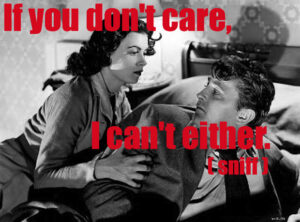 This realization transformed me as a writer; I discovered I had to earn the 21st century reader’s time. I want my students to realize that writers earn our readers by respecting them: by approaching our work with an understanding of who our readers are, as well as who we are.
This realization transformed me as a writer; I discovered I had to earn the 21st century reader’s time. I want my students to realize that writers earn our readers by respecting them: by approaching our work with an understanding of who our readers are, as well as who we are.
For me—even though I’m something of an introvert—it’s always come down to having an abiding interest in the outside world and in the literary world, as well as in the writers and readers who populate it.
 That used to mean reading everything I could get my hands on, from novels to newspapers, and soaking up the The Writer’s Chronicle and Poets and Writers as soon as they hit my doorstep. These days it also means devouring my blog, Facebook, and Twitter feeds, with the hum of public radio in the background.
That used to mean reading everything I could get my hands on, from novels to newspapers, and soaking up the The Writer’s Chronicle and Poets and Writers as soon as they hit my doorstep. These days it also means devouring my blog, Facebook, and Twitter feeds, with the hum of public radio in the background.
So what I’m trying to encourage in my students is an intense curiosity about the world: a curiosity that drives them to not only write one type of poetry, but to also see where this poetry leads them. Perhaps they can visit the places they write about, write about them in other genres for other venues, become a mini-expert on them. And then, when that line is exhausted, they can become obsessed with something else and write about that. That’s the beauty of writing: it allows us to pursue our interests in various aspects of the world, wherever those interests lead. We should share these obsessions and use them to connect to others.
TG: Anything else you’d like to say about the writing craft/career?
 SV: Allan Cheuse, who was one of my professors at GMU, used to tell us that it would take several hundred thousand words before we’d begin to even approach true facility as writers. At the tender age of 23, that number seemed daunting. But looking back, he was about right. The good thing about hearing that was the understanding that from then on, nothing you wrote was ever lost as long as you were doing the writing and putting in the time.
SV: Allan Cheuse, who was one of my professors at GMU, used to tell us that it would take several hundred thousand words before we’d begin to even approach true facility as writers. At the tender age of 23, that number seemed daunting. But looking back, he was about right. The good thing about hearing that was the understanding that from then on, nothing you wrote was ever lost as long as you were doing the writing and putting in the time.
So the most important things young writers should be doing is writing, revising, working with their mentors and peers in workshops, and then writing some more. After they put in that time, they can put whatever energy they have left into growing a platform, seeking readers, building a career, etc.
There will always be a minority of writers who don’t want to engage with the public at all, but their numbers continue to shrink. Fortunately, most of us enjoy being connected to something bigger than ourselves: playing our part, however small, in keeping literary culture healthy and vital so we can pass it on to the next generation.
 Writers! What about you?
Writers! What about you?
- What do you wish your MFA had taught you?
- How do you connect with the (lit) world around you?
- How are you building your platform as a writer?
- How have you sustained your writing practice post-MFA?
